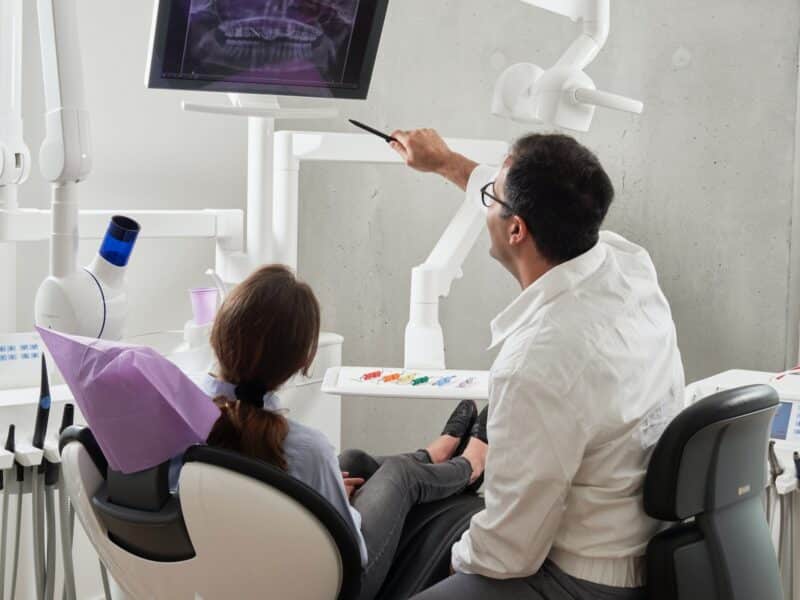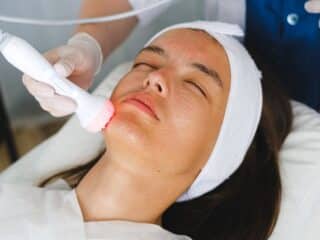
With insights from London-based cosmetic dentist Dr. Sahil Patel of Marylebone Smile Clinic, this article explores how dental care should be tailored to the specific needs of different life stages — childhood, pregnancy, and aging — offering practical advice on how to maintain optimal oral health at each phase.
Childhood: Building the Foundation for a Lifetime of Dental Health
Good oral hygiene practices should begin early in childhood. Establishing healthy dental habits during the formative years sets the stage for a lifetime of strong teeth and healthy gums. However, the dental needs of children differ from those of adults, requiring specific care and attention from parents and dental professionals alike.
The Importance of Baby Teeth
Even though baby teeth (primary teeth) eventually fall out, they play a critical role in a child’s overall dental health. These teeth help children chew and speak properly and act as placeholders for the adult teeth that will emerge later. Premature loss of baby teeth, often due to decay, can lead to spacing issues and misaligned adult teeth.
To prevent cavities, children should begin brushing as soon as the first tooth appears. Fluoride toothpaste and a soft-bristled toothbrush are recommended, but it’s important to supervise brushing to ensure that children do not swallow toothpaste. Parents should start bringing their children to the dentist around their first birthday, ensuring any potential problems are identified early.
Establishing Healthy Habits
Encouraging children to brush and floss daily helps them develop the habits that will protect their teeth as they grow. Limiting sugary snacks and drinks is also essential, as sugars feed the bacteria in the mouth, leading to plaque buildup and tooth decay. Dentists often suggest that parents avoid putting babies to bed with bottles containing milk or juice, as this can cause “baby bottle tooth decay,” a common issue in infants and toddlers.
Routine dental checkups are crucial during childhood. These visits allow dentists to monitor the development of the teeth, apply protective treatments like fluoride varnishes, and offer advice on how to prevent common childhood issues like cavities and gum inflammation.
Preventing and Managing Orthodontic Issues
As children grow, orthodontic issues such as crooked teeth, overcrowding, or bite problems may arise. Early intervention, typically between the ages of 7 and 10, can be highly beneficial. Many children will require orthodontic evaluations to determine whether braces or other corrective measures are necessary. Early orthodontic care can prevent more severe issues from developing later in life and ensure that adult teeth emerge properly.
Pregnancy: Protecting Your Smile During a Time of Change
Pregnancy is a time of significant physical change, and the mouth is no exception. Hormonal fluctuations during pregnancy can impact oral health, making expectant mothers more susceptible to certain dental issues. Ensuring proper dental care during pregnancy is critical not only for the health of the mother but also for the baby’s well-being.
Pregnancy Gingivitis
One of the most common dental concerns during pregnancy is pregnancy gingivitis. Hormonal changes can cause the gums to become more sensitive and prone to inflammation, leading to redness, swelling, and bleeding when brushing or flossing. Left untreated, gingivitis can progress to more serious gum disease, increasing the risk of preterm birth and low birth weight.
Regular dental checkups during pregnancy can help monitor gum health and address any issues before they become more severe. Dr. Sahil Patel advises pregnant women to maintain their regular brushing and flossing routine and to visit their dentist for professional cleanings to prevent gum disease from developing or worsening.
Morning Sickness and Its Effects on Teeth
Many women experience morning sickness during pregnancy, which can expose the teeth to stomach acid, weakening enamel and increasing the risk of cavities. To protect the teeth after vomiting, it’s important not to brush immediately, as the enamel may be softened by the acid. Instead, rinse the mouth with water or a mouthwash to help neutralize the acid before brushing.
Using a fluoride mouthwash or toothpaste can also help strengthen the enamel and protect against decay during pregnancy. Regular dental visits during this time can ensure that any early signs of enamel erosion are identified and treated promptly.
Dietary Considerations
Nutrition is essential for maintaining oral health during pregnancy. A balanced diet rich in calcium, vitamin D, and phosphorus helps ensure that both the mother and the baby receive the nutrients needed for strong teeth and bones. Foods like leafy greens, dairy products, and fish can provide the essential minerals required to support dental health.
Pregnant women should also stay well-hydrated and avoid sugary snacks, which can increase the risk of cavities and gum disease. By following a healthy diet and maintaining regular dental checkups, expectant mothers can protect their own oral health and help set the stage for their child’s future dental well-being.
Aging: Preserving Oral Health in Later Years
As we age, our dental needs change, and maintaining oral health becomes increasingly important for overall wellness. Older adults face a unique set of challenges when it comes to dental care, including the increased risk of gum disease, tooth loss, and dry mouth. With proper care, however, it’s possible to maintain a healthy smile well into old age.
Gum Disease and Aging
Gum disease, or periodontitis, becomes more common as we age, and if left untreated, it can lead to tooth loss and other health complications. Symptoms of gum disease include bleeding gums, bad breath, and receding gums. Older adults are also more likely to experience bone loss in the jaw, which can compromise the stability of the teeth.
Preventing and treating gum disease requires diligent oral hygiene, including daily brushing and flossing, as well as regular dental checkups. In addition to standard cleanings, older adults may require more advanced periodontal care to manage gum health. The importance of frequent dental visits for older patients to prevent the progression of gum disease and to address any issues before they lead to tooth loss must be addressed.
Tooth Loss and Replacements
Tooth loss becomes more common with age due to factors like gum disease, decay, and wear and tear on the teeth. Missing teeth can affect not only the appearance of a smile but also the ability to chew and speak properly. Fortunately, advances in dental technology have made tooth replacement options more effective and natural-looking than ever before.
Dental implants, bridges, and dentures are all viable solutions for replacing missing teeth, restoring both function and aesthetics. Dental implants, in particular, are a popular choice for older adults as they provide a long-lasting, stable option that closely mimics the look and feel of natural teeth.
Dry Mouth and Its Consequences
Many older adults experience dry mouth, often as a side effect of medications. Saliva plays a crucial role in protecting the teeth and gums, as it helps neutralize acids, wash away food particles, and prevent bacterial growth. A lack of saliva can increase the risk of cavities, gum disease, and oral infections.
Older people with dry mouth should drink a lot of water throughout the day and stay away from coffee, alcohol, and tobacco, all of which can make the condition worse. You can also help your mouth make more saliva by using a saliva replacement or eating sugar-free gum. Going to the dentist regularly is important for controlling the effects of dry mouth and avoiding problems.
Oral Cancer Screening
The risk of oral cancer increases with age, particularly in individuals who smoke or consume alcohol. Oral cancer can develop on the lips, tongue, gums, or other soft tissues in the mouth, and early detection is critical for successful treatment.
During routine dental checkups, dentists will often perform an oral cancer screening to check for any unusual sores, lumps, or lesions. Cosmetic dentists always encourages older patients to prioritize these screenings, as early intervention can significantly improve outcomes.
A Lifelong Commitment to Dental Health
Maintaining good dental health requires a lifelong commitment to care. Each stage of life presents its own challenges, but with proper oral hygiene, regular dental checkups, and attention to specific needs, it’s possible to keep your teeth and gums healthy at every age.





